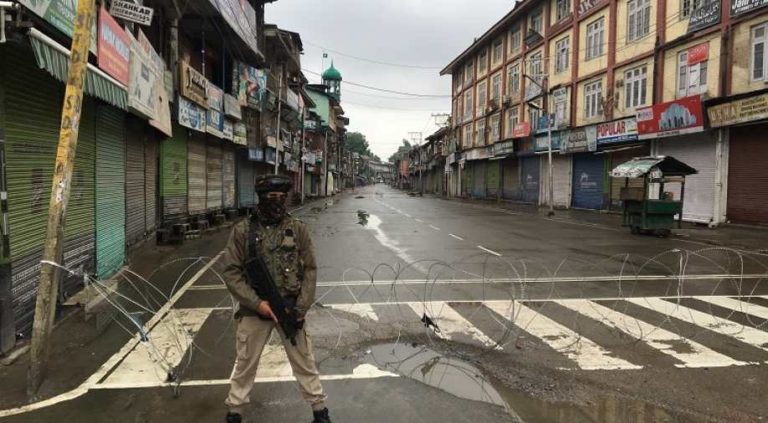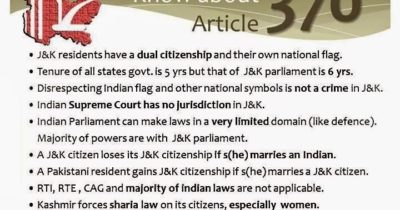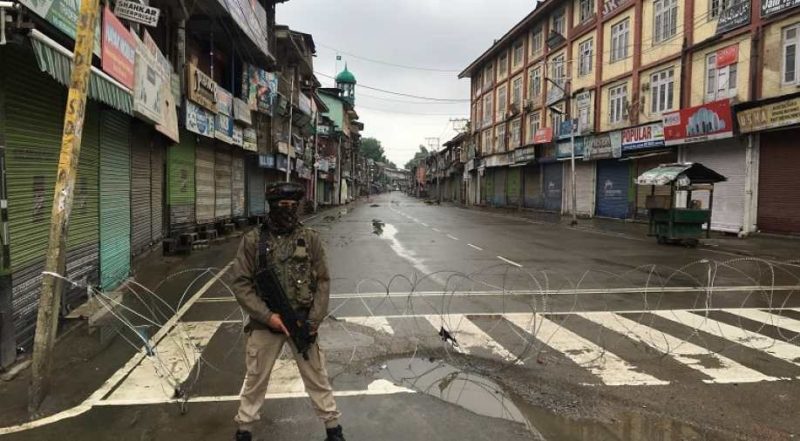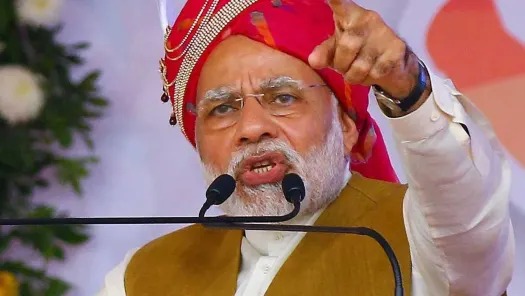
The serenity and elegance of the snow-covered peaks and the clean, refreshing view of the Dal Lake attract thousands of people to the beautiful valleys of Jammu and Kashmir from all over the world. Enriched in culture and beauty, the peaceful and calm mountains of Kashmir is suffering brutally for over six decades now.
The controversies and conflicts between the two countries of India and Pakistan have led to many merciless blood sheddings, and the life of the mountains has been facing significant turbulence for years. Several terror groups of our beloved neighbouring country attack the valleys from time to time, and the gunfights between the military and the terrorists lead to the loss of many innocent lives of the mountains as well. The residents were tired of suffering and pain, and it seemed that this struggle was not going to end any sooner.
What is Article 370?

Our country is trying to improve the conditions from long to bring back the lost harmony of the hills. Article 370 has been a part of our constitution from the year when India became an independent nation, but none of the governing bodies did think of making any changes to it until the present ruling party who decided to remove the unnecessary article.
Article 370 provided a special status to Jammu and Kashmir in terms of autonomy and its ability to formulate laws for the permanent residents of the valleys. The fundamental rights of the Indian Constitution were guaranteed to the citizens of Kashmir with exceptions, and now these fundamental rights have been restored.
After-effects of the scrapping of Article 370

From the day when Modi Government announced the changes, Srinagar has been turned into a city of barricades with enhanced security measures. Several roads have been blocked and the newly formed separate Union Territories of Jammu and Kashmir and Ladakh has been ensured with complete protection from the militaries in order to maintain safety of the citizens as the ruling body could sense that the residents may choose the road to violence and terror if the newly made changes of the Constitution agitate them by any chance.
Most of the tourists have been asked to leave the state, and on the other part, the people of the valleys are still stuck in a state of confusion, shock and anger. Amidst the curfew, Ladakh was being noticed celebrating the Independence day with joy and refreshment. But the communication blackout has been causing a significant problem in the lives of citizens as managing their daily rations and providing medical support to the patients has put them in a helpless condition. Though the roads are filled with ambulances, as the helpline numbers are down, providing proper treatment to the patients in the right moment is seeming to be next to impossible.
The people are burning with anger, mainly because of two reasons. On one hand, the mobiles, telephones, internet and other messaging tools are not working in the valley since the past two weeks, and on the other part, they are feeling that the rights which they were enjoying for years have been taken away abruptly and undemocratically.
Present Scenario of the Valley

The tourism-dependent citizens are facing huge disappointment as this is the peak season for vacationists and all bookings have been cancelled due to the curfew and security restrictions in the hills. The limited chances of business at this point of time is filling their minds with horror and frustration.
In the middle of a quiet city, only a handful of shops are open as the residents are not being allowed to move from one place to another and thus most of the state is feeling like a dessert. On the evening of Eid, our prime minister reached out to the people of the valleys and promised them a better future with a rise in development, job opportunities and educational opportunities.
But the major test seems to begin now, as the Government need to remove poverty from the newly built union territories in order to restore social peace and normality.